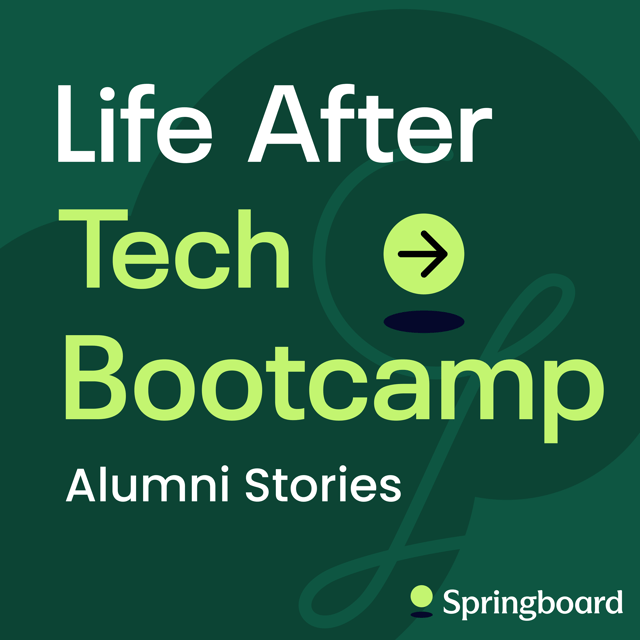

On today's episode, I talk to Cole who is a Data Scientist at the National Research Group.
Cole shares how he got his first job being a recent college graduate and insight on how to maneuver the "needing experience to get experience" cycle.
If you have any questions for Cole or the myself, email us at alumnipodcast@springboard.com
Interested in finally taking the plunge by starting your career in tech? How does $1500 off a Springboard Career Track Course sound?
Use code EPEHT at checkout to save $1500.
Learn more here.
Edited by Dave Bianco
Cover art by Jerry Qu

On today's episode, I talk to Cole who is a Data Scientist at the National Research Group.
Cole shares how he got his first job being a recent college graduate and insight on how to maneuver the "needing experience to get experience" cycle.
If you have any questions for Cole or the myself, email us at alumnipodcast@springboard.com
Interested in finally taking the plunge by starting your career in tech? How does $1500 off a Springboard Career Track Course sound?
Use code EPEHT at checkout to save $1500.
Learn more here.
Edited by Dave Bianco
Cover art by Jerry Qu

